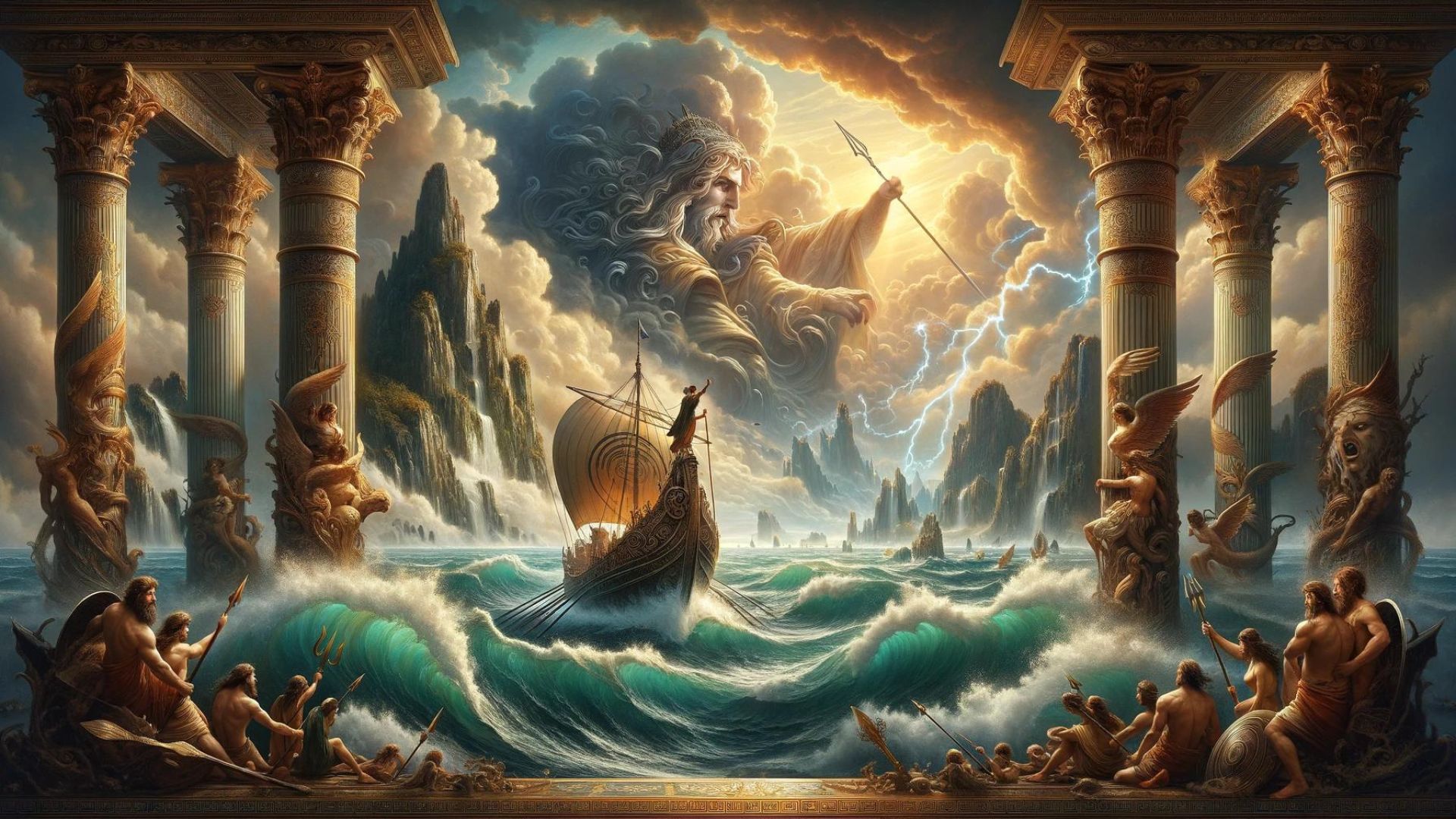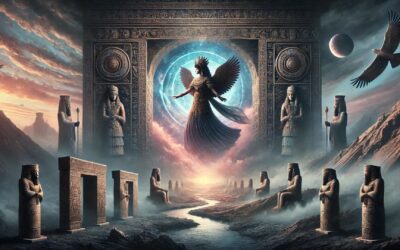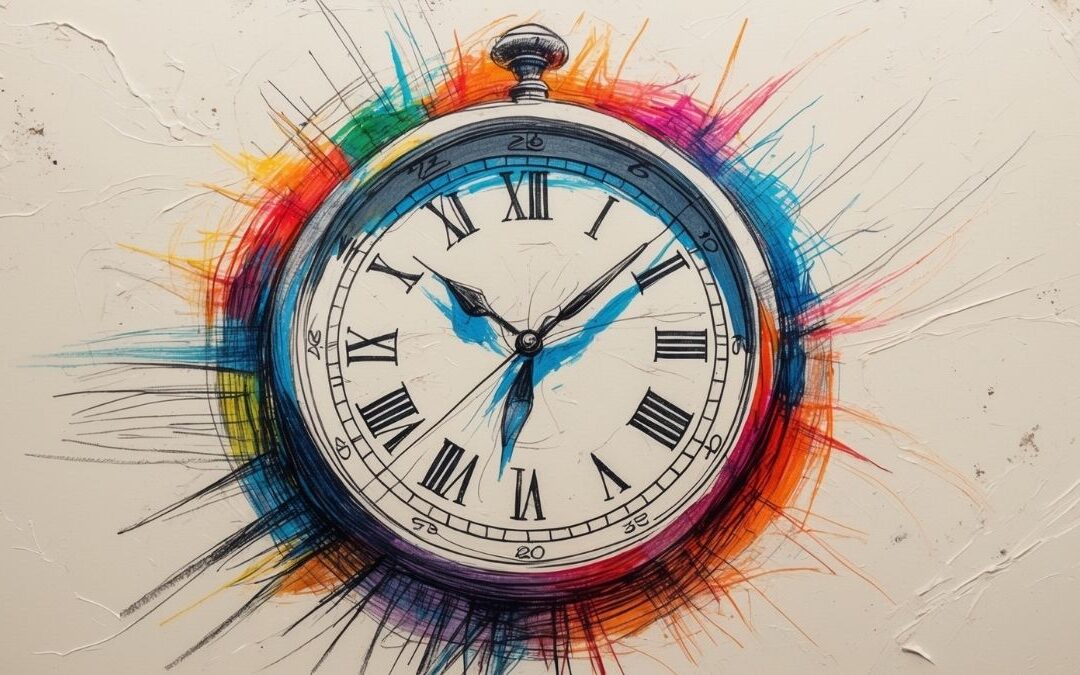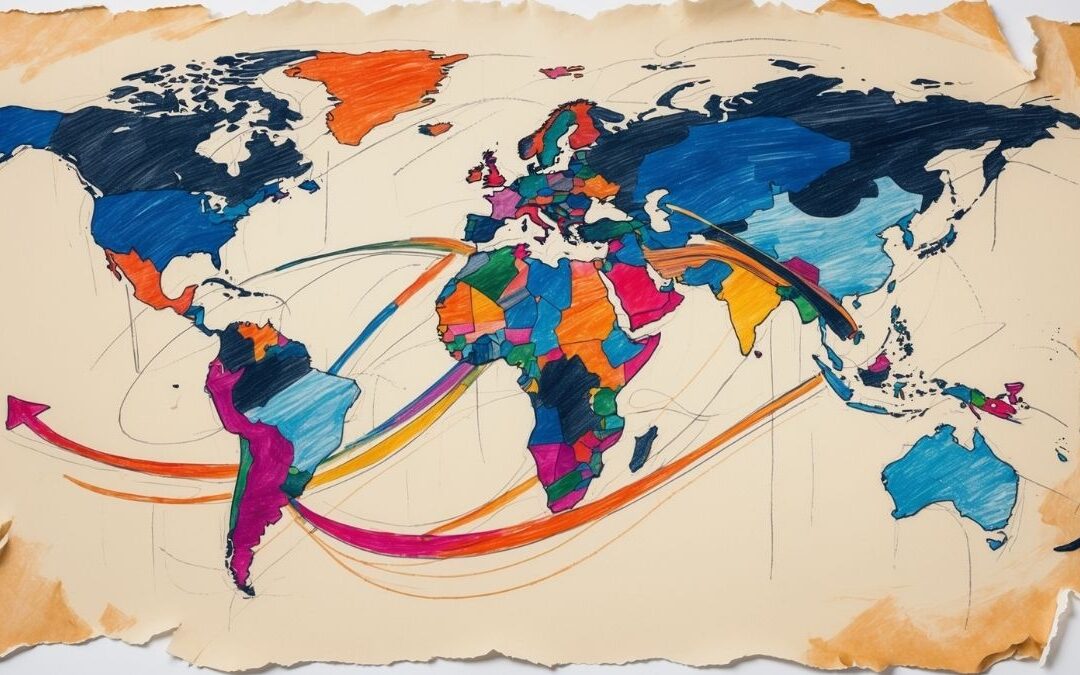Picture yourself lost at sea for ten long years. Storms raging, monsters lurking, and the longing to return home burning in your heart. This is the world of Odysseus, the legendary hero of Homer’s epic poem, “The Odyssey.” Far from being a dusty piece of ancient literature, this tale remains surprisingly relevant to our own lives, offering insights into courage, perseverance, and the challenges we all face on our journeys.
A Hero’s Quest…A Timeless Reflection
Odysseus, king of Ithaca, is a war hero famed for his cleverness. After the Trojan War, the gods and fate throw everything they can at him – a vengeful Poseidon, a manipulative sorceress, even a monstrous, one-eyed Cyclops. Despite this, Odysseus never gives up on his goal: getting home to his wife, Penelope, and his son, Telemachus. This unwavering focus on home resonates with anyone who has felt lost or disoriented in their lives. Whether you’re battling metaphorical ‘monsters’ or yearning for a familiar place, Odysseus reminds us of the power of a guiding beacon to see us through.
Along the way, he encounters characters that put human flaws and desires under a microscope. There’s arrogance, exemplified by his men who disrespect sacred creatures and suffer the consequences. There’s temptation and loyalty, tested by the enchantress Circe and his steadfast crew. Even Odysseus himself isn’t immune, exhibiting pride and anger that bring their own consequences. We’ve all made choices that felt right at the time but may have led us astray. “The Odyssey” is a constant invitation to reflect on our own decisions and those of the people around us.
The Importance of Wisdom and Patience
It’s not just brute strength that saves Odysseus on his journey. His survival often depends on cunning strategy and level-headed decision-making. Outwitting the Cyclops, resisting supernatural influences – Odysseus shows us the value of intellect in navigating a sometimes-chaotic world. It’s not that quick action has no place, but a willingness to take the time to understand a situation before charging in blindly is equally vital for us today.
An Enduring Classic for a Reason
“The Odyssey” has survived millennia because it tackles timeless themes we still grapple with. Love, loss, courage, self-discovery – these are interwoven through the fabric of Homer’s tale. These aren’t merely fantastical characters doing mythical deeds; they are a mirror held up to our own capabilities and flaws. They’re a reminder that the most worthwhile journeys, whether grand or small, are rarely easy. We may not encounter literal sea monsters, but we all have obstacles to overcome and temptations to avoid.
Embark on Your Own Odyssey
The beauty of a classic like “The Odyssey” is that it sparks contemplation for each reader. Take a moment to reflect:
- What do you consider your “Ithaca” – the place or pursuit that keeps you moving forward?
- Who are the mentors and helpers along your own journey?
- What personal qualities, like Odysseus’s cleverness or perseverance, can you strive to embody?
Just as Odysseus left his mark on the Greek world, we have the power to craft our own unique stories. Embrace the challenges you encounter as chapters in your personal odyssey, learn the lessons they hold, and find strength in the realization that you, too, have the potential for heroics within your own life.
Why Should You Care?
- Gain Self-Understanding: “The Odyssey” acts as a mirror, reflecting our own strengths, flaws, and life experiences. It allows for honest self-reflection and deeper personal growth.
- Build Resilience: The tale highlights the enduring importance of courage, tenacity, and a unwavering spirit, even when we face insurmountable odds.
- Appreciate Timeless Wisdom: The epic poem presents age-old themes of love, loss, temptation, and overcoming adversity— concepts as relevant today as they were thousands of years ago.
Key Takeaways
- Home Can Be a Powerful Motivator: Odysseus’s relentless drive to return to Ithaca reminds us of the significance of belonging and the importance of having something to strive for.
- We All Have Heroic Potential: While Odysseus is certainly remarkable, “The Odyssey” shows that every person possesses inner strength and the potential to confront life’s challenges.
- Decisions Have Consequences: The poem highlights the long-term impact of our choices, with Odysseus and his companions experiencing both rewards and setbacks resulting from their actions.
- Cleverness Counts: A keen mind and adaptability are just as important as brute force when overcoming obstacles.
Keywords
- The Odyssey: Homer’s epic Greek poem chronicling Odysseus’s journey home after the Trojan War.
- Odysseus: The cunning and resourceful king of Ithaca and central figure of “The Odyssey”.
- Trojan War: The legendary conflict between Greece and Troy, where Odysseus made his name as a hero.
- Homer: The revered poet credited with authoring “The Odyssey” and “The Iliad”.
- Epic poem: A lengthy, narrative work of poetry typically detailing heroic deeds and events important to a culture or nation.
- Mythology: A collection of myths – traditional stories often concerning gods and heroes – which hold significance within a society.
- Gods and Goddesses: Powerful and often fickle divine beings who play a pivotal role in guiding and meddling with the affairs of mortals within “The Odyssey”.
- Monsters: Supernatural creatures, like the Cyclops or Scylla, symbolizing the dangers Odysseus confronts.
- Temptation: External allurements that can lead characters astray, such as the Lotus Eaters or the Sirens.
- Homecoming: The central, overarching goal of Odysseus, serving as a representation of our human need for belonging.
Frequently Asked Questions (FAQs)
- Who actually wrote “The Odyssey”?: Scholars attribute both “The Odyssey” and “The Iliad” to Homer, but debate still exists on whether one poet was responsible or if the stories evolved over time through oral tradition.
- What happened to Odysseus after returning to Ithaca? His subsequent journeys or final days are unclear and subject to different interpretations and other mythological retellings.
- Why is “The Odyssey” considered a classic? Its exploration of fundamental human experiences, the beauty of its language, and its lasting impact on art and literature have solidified its place among timeless works.
Myth Buster
- Myth: “The Odyssey” is merely a fictional adventure story.
- Reality: While fantastical, the story explores serious moral questions, philosophical ideas, and reflects real anxieties concerning survival, identity, and loyalty that existed in ancient societies.
Let’s Talk
- How do the flaws of Odysseus influence the events of the poem? Would you consider him a true hero?
- Do you think there’s a modern equivalent of “The Odyssey”? What books, movies, or TV shows capture a similar feel?
- Is Odysseus’ relentless focus on returning home relatable in our own lives? What different things can the idea of ‘home’ symbolize?
Feel free to share your thoughts on these questions in the comments below!










0 Comments